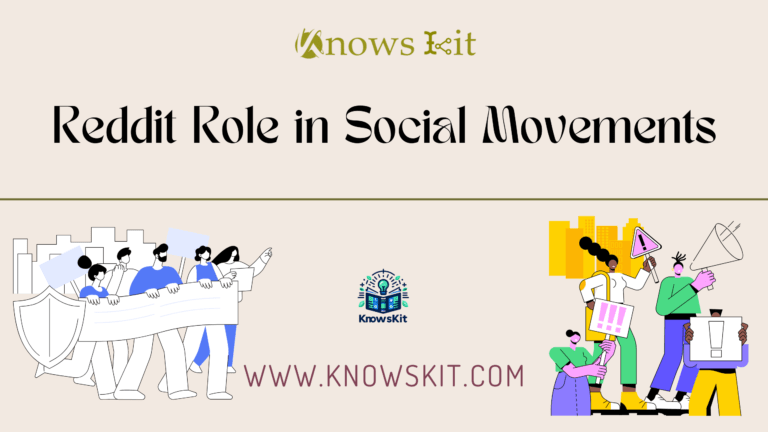Introduction
In our digitally-driven world, the importance of a robust online presence is undeniable. At the forefront of this digital revolution are social media platforms, not just as tools for connectivity but as vital components of effective marketing strategies. This is where the role of a Freelance Social Media Manager becomes pivotal.
Social media management is no longer just a buzzword; it’s a career path that combines creativity with analytical skills, allowing individuals to make a significant impact on the digital footprint of businesses. As a Freelance Social Media Manager, you’re not just crafting posts and content; you’re shaping the online persona of a brand, engaging with audiences, and driving marketing strategies that resonate in the digital age.
This guide is designed to take you through the journey of becoming a successful Freelance Social Media Manager. We’ll explore the skills required, the challenges faced, and the strategies for thriving in this dynamic field. Whether you’re considering a career switch or looking to refine your skills in social media management, this comprehensive guide is your roadmap to success in the ever-changing digital landscape.
Key Takeaway: The role of a Freelance Social Media Manager is dynamic and crucial in shaping a brand’s online presence. It’s a career that offers creativity, flexibility, and the opportunity to make a real impact in the digital world.
Understanding the Role
![Freelance Social Media Manager [2024 Complete Exquisite Guide] 2 Professional digital workspace with social media platforms, analytics, and strategy plans for freelance social media management.](https://www.knowskit.com/wp-content/uploads/2024/01/strategizing-social-media-the-freelancer-workspace-1024x585.png)
What is a Freelance Social Media Manager?
A Freelance Social Media Manager is akin to a digital maestro, orchestrating a brand’s online presence on various social media platforms. This role is multifaceted, requiring a blend of creativity, strategic planning, and communication skills. As a freelancer, you have the unique opportunity to work with diverse clients, each with their distinct brand voice and objectives.
Key Responsibilities:
- Content Creation: Crafting posts that are not only engaging but also align with the brand’s voice and campaign goals.
- Strategy Implementation: Developing a comprehensive social media strategy that encompasses content planning, posting schedules, and engagement tactics.
- Community Engagement: Actively engaging with followers, responding to comments, and fostering a community around the brand.
- Analytics and Reporting: Analyzing performance metrics to gauge the success of social media campaigns and making data-driven decisions for future strategies.
- Client Communication: Regularly update clients on progress, insights, and recommendations for their social media presence.
Table: Freelance vs. In-House Social Media Managers
| Aspect | Freelance Social Media Manager | In-House Social Media Manager |
|---|---|---|
| Work Environment | Diverse, often remote, offering flexibility and variety | Typically office-based, with a more consistent environment |
| Flexibility | High, with the freedom to choose clients and projects | Limited, often adhering to a fixed schedule and company policies |
| Skill Diversification | Exposure to various industries and strategies | Specialized focus on a single brand’s strategy |
| Client Interaction | Direct client communication and personal brand building | Usually mediated through corporate structure |
The Rise of Social Media Management as a Freelance Career
The digital landscape has shifted dramatically in the past decade, with social media becoming an integral part of business strategies. This shift has created a burgeoning demand for skilled social media managers, particularly freelancers who offer flexibility and a fresh perspective.
Graph: Growth of Freelance Opportunities in Social Media Management
- Illustrates a significant increase in the demand for freelance social media professionals over recent years, highlighting the expanding market and the diverse opportunities available.
The freelance nature of this role allows for a unique blend of creativity, independence, and the chance to work on a variety of projects, making it an increasingly attractive career option for many.
Key Insight: The role of a Freelance Social Media Manager is dynamic, requiring a diverse set of skills and offering the flexibility to work with various clients across different industries.
Skills and Qualifications
![Freelance Social Media Manager [2024 Complete Exquisite Guide] 3 Collage of diverse social media platforms like Facebook, Twitter, Instagram, LinkedIn, symbolizing digital interconnectedness.](https://www.knowskit.com/wp-content/uploads/2024/01/the-digital-mosaic-social-media-connectivity-1024x585.png)
Essential Skills for a Freelance Social Media Manager
To excel as a Freelance Social Media Manager, certain core skills are indispensable. These skills form the foundation of your ability to effectively manage and grow a brand’s social media presence.
- Content Creation: The ability to create compelling, engaging, and platform-specific content is crucial. This includes writing captivating posts, designing graphics, and even producing short videos.
- Analytics: Understanding and interpreting data is key. You need to analyze metrics like engagement rates, follower growth, and content reach to evaluate the effectiveness of your strategies.
- Adaptability: Social media is ever-changing. Being adaptable and staying abreast of the latest trends and platform updates is essential.
- Communication: Effective communication with clients and their audience is vital. This means not only articulating your strategies clearly to clients but also engaging with the audience in the brand’s voice.
Case Study: Success Stories of Skilled Social Media Managers
- Feature a real-life example of how a freelance social media manager used their skills to transform a client’s social media presence, highlighting the increase in engagement and audience growth.
Educational Background and Certifications
While formal education in fields like marketing or communications can be beneficial, it’s not always necessary. Many successful freelance social media managers are self-taught, continually learning through online courses, webinars, and hands-on experience.
Sidebar: Recommended Online Courses and Resources
- Offer a list of valuable resources and courses for aspiring social media managers. This could include courses on content creation, social media analytics, and strategy development from platforms like Coursera, LinkedIn Learning, or specific social media platforms.
The combination of practical skills and continuous learning makes a Freelance Social Media Manager not just a job title, but a dynamic and continually evolving career path.
Key Insight: A successful Freelance Social Media Manager combines practical skills like content creation and analytics with continuous learning and adaptability.
Building Your Freelance Career
![Freelance Social Media Manager [2024 Complete Exquisite Guide] 4 Infographic detailing steps to become a freelance social media manager, including building online presence and client acquisition.](https://www.knowskit.com/wp-content/uploads/2024/01/your-path-to-social-media-mastery-a-freelancer-guide-1024x585.png)
Getting Started as a Freelance Social Media Manager
Embarking on a freelance journey in social media management is both exhilarating and challenging. Here are the steps to get you started:
- Create Your Online Presence: Establish your professional profiles on platforms like LinkedIn, Instagram, and Twitter. Showcase your social media skills through your content and interactions.
- Develop a Portfolio: Compile your best work, including content you’ve created, successful campaigns you’ve been part of, and any measurable growth you’ve achieved on social media platforms.
- Network Vigorously: Attend industry events, join online forums, and connect with other professionals in the field. Networking is key to finding opportunities and learning from others.
Finding and Securing Clients
Securing clients is a crucial step in your freelance journey. Here’s how you can approach this:
- Leverage Online Platforms: Websites like Upwork, Fiverr, and LinkedIn can be great starting points for finding freelance opportunities.
- Marketing Your Services: Use your social media skills to market yourself. Create engaging content that showcases your expertise in social media management.
- Word of Mouth: Encourage satisfied clients to refer you to others. Positive client testimonials are incredibly powerful.
Quote from a Successful Freelance Social Media Manager:
“Building a strong network and showcasing your skills through your own social media profiles are key to attracting potential clients. It’s about making your work visible and letting it speak for you.”
Building a freelance career takes time, persistence, and a strategic approach to marketing your skills and services. The more you put yourself out there, the more opportunities you’re likely to find.
Key Insight: Successfully launching a freelance social media management career involves building a strong online presence, showcasing your skills, and actively seeking out opportunities.
Tools of the Trade
![Freelance Social Media Manager [2024 Complete Exquisite Guide] 5 Diverse analytics graphs and social media metrics on a computer screen, focusing on engagement rates and follower growth.](https://www.knowskit.com/wp-content/uploads/2024/01/dall·e-2024-01-12-022808-an-image-showing-a-diverse-array-of-analytics-graphs-and-social-media-metrics-on-a-computer-screen-highlighting-important-data-like-engagement-rates-1024x585.png)
Essential Tools for Managing Social Media Accounts
As a Freelance Social Media Manager, having the right tools at your disposal can significantly streamline your workflow and enhance the effectiveness of your strategies.
- Scheduling Tools: Platforms like Buffer or Hootsuite allow you to schedule posts in advance, saving time and ensuring a consistent online presence.
- Analytics Tools: Understanding the performance of your content is crucial. Tools like Google Analytics and the built-in analytics of social media platforms provide valuable insights into audience behavior and campaign effectiveness.
- Graphic Design Tools: Eye-catching visuals are key in social media. Canva, with its user-friendly interface and vast library of templates, is a favorite among social media professionals.
Table: Top 5 Tools for Social Media Managers
| Tool | Purpose | Key Feature |
|---|---|---|
| Buffer | Scheduling | Efficiently manage multiple accounts and schedules |
| Hootsuite | All-in-one management | Tracks performance across various platforms |
| Canva | Graphic Design | Easy to use with professional design templates |
| Google Analytics | Performance Tracking | Provides detailed insights into audience behavior |
| BuzzSumo | Content Research | Helps identify trending topics and content |
Staying Organized and Productive
Efficient management of time and resources is crucial for a freelancer juggling multiple clients.
- Project Management Tools: Digital tools like Trello or Asana can help organize tasks, set deadlines, and track progress.
- Consistent Scheduling: Having a structured daily routine is vital. Allocate specific hours for content creation, client communication, and strategy planning.
Case Study: How Top Freelancers Manage Multiple Clients
- An in-depth profile of a successful freelance social media manager, illustrating their daily routine and how they use digital tools to stay organized and productive while managing multiple clients.
Effective use of these tools not only helps in managing the workload efficiently but also in delivering high-quality results that can elevate the social media presence of your clients.
Key Insight: Mastery of digital tools and effective time management are crucial for a Freelance Social Media Manager to manage multiple clients efficiently and deliver impactful results.
Crafting Effective Social Media Strategies
Understanding Your Client’s Needs
Before diving into content creation and campaign execution, it’s crucial to have a deep understanding of what your client aims to achieve through social media. This understanding will shape every aspect of your strategy.
- Identify Client Goals: Is the focus on brand awareness, lead generation, customer engagement, or sales? Each objective requires a different approach.
- Know the Target Audience: Who is the client aiming to reach? Understanding the audience demographics, interests, and online behavior is essential for crafting relevant content.
Developing a Social Media Strategy
Creating a customized social media strategy is akin to drawing a roadmap for your client’s online journey. This strategy should be comprehensive, adaptable, and measurable.
- Define Clear Objectives: Establish what the campaign aims to achieve. Set measurable goals like increasing follower count, boosting engagement rates, or driving website traffic.
- Content Planning: Decide what type of content will be most effective. This could include blog posts, videos, infographics, or user-generated content.
- Schedule and Frequency: Determine how often to post and at what times. Consistency is key, but so is not overwhelm the audience.
- Engagement Strategy: Plan how to actively engage with the audience. This includes responding to comments, running polls or contests, and utilizing user-generated content.
Checklist: Key Elements of a Successful Social Media Strategy
- Clear objectives and goals.
- Target audience analysis.
- Content plan and calendar.
- Engagement tactics.
- Performance metrics and KPIs.
Developing a social media strategy requires a balance between creativity, strategic planning, and continuous adaptation to the results you observe.
Key Insight: A successful social media strategy is tailored to the client’s goals and audience, combining creative content planning with strategic execution and ongoing adaptation.
Challenges and Solutions
![Freelance Social Media Manager [2024 Complete Exquisite Guide] 6 Image showing a freelance social media manager interacting with an online community through likes, comments, and conversation bubbles.](https://www.knowskit.com/wp-content/uploads/2024/01/connecting-communities-the-social-aspect-of-media-management-1024x585.png)
Common Challenges Faced by Freelance Social Media Managers
Freelance social media management is an exciting and dynamic field, but it comes with its own set of challenges. Recognizing and preparing for these obstacles is key to a successful career.
- Inconsistent Workload: Freelancers often face fluctuations in work volume, which can lead to income instability.
- Client Management: Dealing with a range of clients means navigating varying expectations, deadlines, and feedback.
- Keeping Up with Trends: The fast-paced nature of social media means constant learning and adaptation to stay relevant.
Overcoming These Challenges
- Diversification: To manage workload fluctuations, diversify your client base. This not only stabilizes income but also broadens your experience.
- Effective Communication: Clear, concise, and regular communication can mitigate many client-related challenges. Setting expectations early and providing consistent updates can build trust and clarity.
- Continuous Learning: Dedicate time each week to stay updated with the latest social media trends and platform updates. This keeps your skills sharp and services competitive.
Quote from Industry Experts:
“The life of a freelance social media manager is a balancing act. Staying adaptable, continuously learning, and maintaining open lines of communication with clients are key to overcoming the challenges of this career.”
Recognizing these challenges and proactively addressing them can help you build a resilient and rewarding freelance career in social media management.
Key Insight: Successful freelance social media managers anticipate and adapt to challenges like workload variability, diverse client expectations, and the rapidly evolving nature of social media.
Financial Aspects
Setting Your Rates and Negotiating Contracts
One of the most critical aspects of freelancing is determining how much to charge for your services. Setting your rates is a balancing act between valuing your skills and understanding market standards.
- Research Market Rates: Understand what other social media managers are charging. This can vary based on location, experience, and the complexity of the services offered.
- Value Your Skills Appropriately: Consider your experience, the results you can deliver, and the uniqueness of your skills when setting rates.
- Draft Clear Contracts: Ensure that your contracts clearly outline the scope of work, payment terms, and any other expectations. This helps prevent misunderstandings and ensures a professional relationship with your clients.
Managing Finances as a Freelancer
Financial management is a crucial skill for freelancers. Unlike traditional employment, your income may fluctuate, making budgeting and financial planning essential.
- Effective Budgeting: Keep track of your income and expenses. Tools like QuickBooks or Mint can help manage your finances efficiently.
- Professional Invoicing: Use tools like FreshBooks or Invoice Ninja to create professional invoices. Timely and clear invoicing is key to maintaining cash flow.
- Plan for Lean Periods: Save a portion of your income for slower months. This financial cushion can help you navigate periods with less work without stress.
Navigating the financial aspects of freelancing can be challenging, but with proper planning and tools, it can also be incredibly rewarding, offering you control over your earnings and financial independence.
Key Insight: Effective financial management, including setting appropriate rates, clear contracting, and budgeting, is essential for the sustainability and growth of a freelance social media management career.
Staying Ahead in the Industry
![Freelance Social Media Manager [2024 Complete Exquisite Guide] 7 Freelancer negotiating with a client over a video call, highlighting clear communication in a remote work setting.](https://www.knowskit.com/wp-content/uploads/2024/01/bridging-distances-freelancer-and-client-collaboration-1024x585.png)
Keeping Up with Social Media Trends
In the rapidly evolving world of social media, staying current with the latest trends and platform updates is not just beneficial—it’s essential. Here’s how you can stay ahead:
- Follow Industry News: Subscribe to social media news platforms, blogs, and podcasts. This keeps you informed about the latest developments in the industry.
- Engage with the Community: Join social media groups, forums, and attend webinars. Engaging with peers can provide valuable insights and shared experiences.
- Experiment with New Features: Platforms frequently update with new features. Experimenting with these can keep your strategies fresh and innovative.
List: Top Resources for Staying Informed
Websites and Blogs
- Social Media Today
- Website: Social Media Today
- Focus: Latest news and insights in social media marketing.
- Social Media Examiner
- Website: Social Media Examiner
- Focus: In-depth research, tips, and advice on social media marketing.
- Buffer Blog
- Website: Buffer Blog
- Focus: Strategies, case studies, and updates on social media tools.
- Hootsuite Blog
- Website: Hootsuite Blog
- Focus: Tips, tricks, and trends in social media marketing.
- Sprout Social Insights
- Website: Sprout Social Insights
- Focus: Data-driven insights and industry-specific social media strategies.
Influential Social Media Marketers to Follow
- Gary Vaynerchuk (@garyvee)
- Platforms: Twitter, LinkedIn
- Focus: Entrepreneurship, digital marketing, social media trends.
- Mari Smith (@MariSmith)
- Platforms: Twitter, LinkedIn
- Focus: Facebook marketing expert and social media thought leader.
- Neil Patel (@neilpatel)
- Platforms: Twitter, LinkedIn
- Focus: Digital marketing, SEO, and content marketing insights.
- Ann Handley (@MarketingProfs)
- Platforms: Twitter, LinkedIn
- Focus: Content marketing strategy and insights.
- Kim Garst (@kimgarst)
- Platforms: Twitter, LinkedIn
- Focus: Social media marketing and branding advice.
- Jay Baer (@jaybaer)
- Platforms: Twitter, LinkedIn
- Focus: Customer experience, marketing strategy, and social media.
- Peg Fitzpatrick (@PegFitzpatrick)
- Platforms: Twitter, LinkedIn
- Focus: Social media marketing strategies and visual marketing.
Continuous Learning and Growth
The field of social media is not static, and neither should be your skill set. Continuous learning is crucial for long-term success.
- Professional Development: Enroll in courses and workshops to upgrade your skills. Many online platforms offer courses in advanced social media strategies, analytics, and content creation.
- Networking: Building a professional network is invaluable. It opens up opportunities for collaboration, mentorship, and new client acquisition.
The key to success in this field is a commitment to never stop learning and growing. This not only keeps your services competitive but also fuels your passion and enthusiasm for what you do.
Key Insight: Staying informed about industry trends, engaging with the social media community, and committing to continuous learning are critical for maintaining a competitive edge as a Freelance Social Media Manager.
Conclusion
Embarking on the journey to become a Freelance Social Media Manager is an exciting venture in today’s digital world. This role not only offers the flexibility and freedom associated with freelance work but also the opportunity to make a tangible impact in the realm of digital marketing. As we’ve explored in this comprehensive guide, success in this field hinges on a blend of creativity, strategic thinking, adaptability, and continuous learning.
From understanding the multifaceted role and mastering the essential skills to navigating the financial aspects and staying ahead in the ever-evolving social media landscape, each step on this path presents unique challenges and opportunities. Remember, the key to thriving as a Freelance Social Media Manager lies in your ability to adapt to changes, communicate effectively with clients, and continually hone your skills.
As you forge your path in this dynamic field, keep in mind that your growth and success are not just measured by the number of likes or followers but by the lasting relationships you build with clients and the impactful strategies you implement. Embrace the journey, and let your passion for social media drive your pursuit of excellence.
Final Thought: In the world of freelance social media management, the only constant is change. Embrace it, learn from it, and let it propel you towards a fulfilling and successful career.
FAQ
How much time should a Freelance Social Media Manager spend on professional development?
Time for Professional Development:
Frequency: Dedicate a few hours each week.
Activities: This can include reading industry blogs, attending webinars, or taking online courses.
Focus Areas: Aim to learn about new social media tools, strategies, and updates on existing platforms.
Can a beginner in social media management start freelancing right away?
Starting as a Beginner:
Foundational Knowledge: Build basic skills through courses or self-study.
Initial Projects: Start with small projects or internships to gain practical experience.
Portfolio Development: Create a portfolio showcasing your work, even if it’s personal or voluntary projects.
What is the most effective way to showcase my skills to potential clients?
Showcasing Skills to Potential Clients:
Maintain an Active Online Presence: Regularly update your professional social media profiles with your work and insights.
Portfolio: Develop a comprehensive portfolio that includes case studies, strategies you’ve implemented, and results achieved.
Testimonials: Collect and display testimonials or recommendations from past clients.
How do I handle negative feedback or crises on social media for a client?
Handling Negative Feedback or Crises:
Immediate Response: Acknowledge the issue promptly.
Professionalism: Keep responses professional and objective.
Crisis Plan: Have a plan ready for different types of crises, outlining steps to manage the situation.
Is specializing in a particular social media platform advantageous?
Specializing in a Particular Platform:
Expertise: Deep knowledge in one platform can make you highly sought after for specific needs.
Balance: While specialization is good, basic knowledge in other platforms is also beneficial for versatility.
What are some common mistakes to avoid as a Freelance Social Media Manager?
Common Mistakes to Avoid:
Overcommitting: Taking on too many clients can lead to burnout and reduced quality of work.
Neglecting Learning: Failing to stay updated with the latest trends and tools in social media.
Ignoring Analytics: Not using data to inform and adjust strategies.
How do I measure the success of my social media strategies?
Measuring Success of Strategies:
Key Metrics: Look at engagement rates, follower growth, website traffic, and conversion rates.
Goal Alignment: Ensure metrics align with the client’s objectives.
Regular Reviews: Regularly review and adjust strategies based on these metrics.
What’s the best way to stay motivated during slower periods?
Staying Motivated During Slow Periods:
Skill Enhancement: Use the time for learning new skills or enhancing existing ones.
Networking: Engage in networking activities to build connections.
Portfolio Updates: Update your portfolio and online profiles with new skills and experiences.
How important is personal branding for a Freelance Social Media Manager?
Importance of Personal Branding:
Reflection of Expertise: Your personal brand showcases your skills and style.
Attracting Clients: A strong personal brand attracts clients who are a good fit for your working style.
Differentiation: Helps you stand out in a competitive market.
What are some effective ways to negotiate rates with clients?
Negotiating Rates with Clients:
Know Your Worth: Have a clear understanding of the value you bring.
Transparency: Be clear about what your services include.
Justification: Be prepared to explain how your services benefit the client’s business.

![Freelance Social Media Manager [2024 Complete Exquisite Guide] 1 Image showing a freelance social media manager interacting with an online community through likes, comments, and conversation bubbles.](https://www.knowskit.com/wp-content/uploads/2024/01/connecting-communities-the-social-aspect-of-media-management.png)
![Mastering Social Media Calendar [2024 Exquisite Guide] 14 Visual step-by-step guide for creating an effective social media calendar.](https://www.knowskit.com/wp-content/uploads/2024/01/crafting-your-calendar-a-step-by-step-approach-768x439.png)



![Social Media Optimization [2024 Exquisite Guide] 18 Infographic detailing the differences and synergies between SEO and SMO.](https://www.knowskit.com/wp-content/uploads/2024/01/comparing-seo-and-smo-in-digital-marketing-768x439.png)
